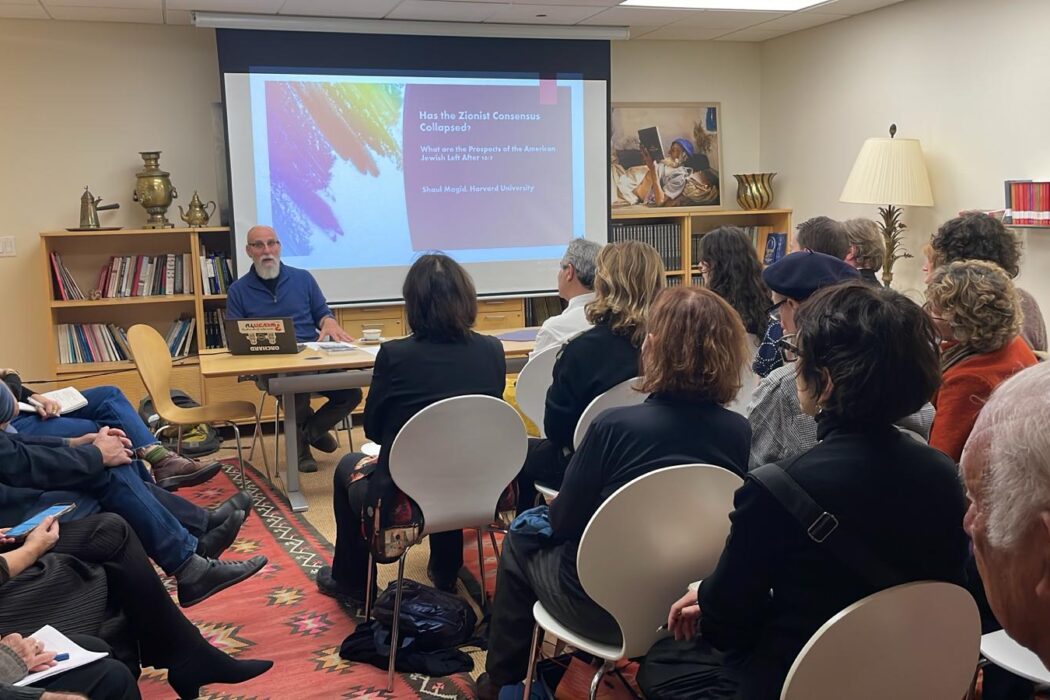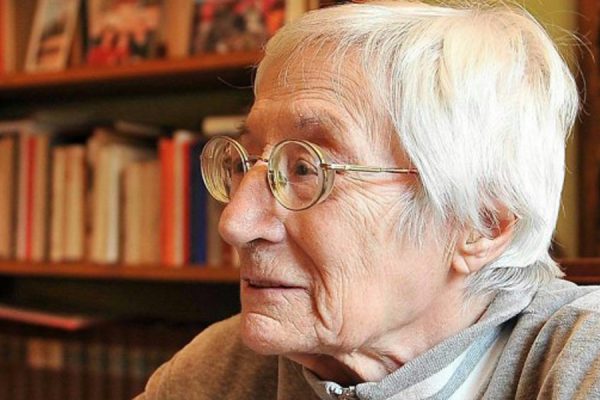The American Sephardi Federation is pleased to invite colleagues and the public to the sixth-floor Bookhouse at the Center for Jewish History, a consortium of Jewish libraries, archives, research institutes, and a museum.
The Bookhouse is an intimate space for collaborative work on books and book culture and history, comprised of a reading room, a study room, a History of the Hebrew Book “Showbox,” and a Bookstore. Dwellers of the “house” are the American Sephardi Federation, Centro Primo Levi, and Dan Wyman Books.
House—A house is a place where people gather to do things together. Beit, Maison, Casa, Ev, and Bayt are words traditionally affixed to concepts with both private and collective dimensions—fundamental traits shared by books. Many languages include phrases denoting a “house of prayer,” a “house of study,” a “house of memory,” a “publishing house,” and a “fun house.”
Bookhouse is a small space with many uses. We have furnished it with re-purposed items and populated with books from earlier owners, each with a previous life whose meaning is re- worked into the new setting. The house is sustained by personal relationships. We plan to use technology in idiosyncratic ways, and never to substitute, expand, or reproduce human presence. What is said and done in this small room might be the beginning of long-lasting conversations and endeavors. Just as well – might never be heard again, set in print, or remembered.
Books – Throughout history, books have come into existence in many forms. While technology has influenced their development and social roles, the conundrum of seizing the spoken word on stone, parchment, papyrus, paper, or a screen has always loomed large in the making of books. For Muslims and Jews alike, and not uniquely, the tension between that spoken “breath” and its organized form on a surface has never ceased to be a source of awe and ambivalence even as they sought to inscribe themselves in the history of the People of the Book. That tension incessantly accompanies writers, book-makers, book-sellers, and book- lovers.
Today, books have thoroughly been co-opted into branding, mass production, corporate efficiency, and the cult of best practices. Yet, communities of book people continue to flourish everywhere, embracing the tools of modernity and yet sharing the values of uncertainty, discontinuity, and inconsistency that book-making teaches. Books carry meaning in all their components, including many that only a few can read. Like their making, their circulation carries layers of meaning and shapes history.
Each of the dwellers of the Bookhouse has long been involved with books: ASF with collecting, CPL with publishing, and Dan Wyman with trading. We come together to share old and new ways of enjoying books. It is the beginning of a new story, and we hope that every visitor will contribute to and be part of this adventure with us.
Hebrew – Hebrew is an ancient language whose early usage is only partially understood. For the most part, it flourished as an unwritten idiom alongside other now-extinct spoken languages of the same family for thousands of years. At its mature stage and for many centuries, its cradle was Arabic, which is closely related. A limited community of speakers used it as a sacred and literary language, inflecting it with forms and concepts from the languages they spoke from other linguistic families, including Greek, Farsi, and Latin. The history of written Hebrew is venturesome, filled with hesitations, riddles, and encounters. With no absolute spatial or chronological borders, it flows on a map that allows no ownership of historical perspectives. Only in the 20th century, it became fully spoken in all fields of daily life and identified with geographical borders as it had never been in its previous history.
One of the features of the Bookhouse is a “show-box” that will feature Hebrew books’ stories from all places and times. Musing on a long and extravagant line of boxes made to contain stories (a Sicilian puppet theater, a Pandora box, an Aaron HaQodesh, a Lord & Taylor window, a television set), this box was designed for the Bookhouse. The Showbox opens and closes through a curtain based on an early 18th-century embroidered ornamental design from the Jewish Museum of Rome.
COME VISIT THE BOOKHOUSE!
Where – The Bookhouse is located on the 6th floor of the Center for Jewish History at 15 West 16th Street in Chelsea.
Opening Hours – Every Thursday, from 10:00 am to 5:00 pm visitors are welcome to visit and browse books on Jewish history and culture, including rare, classics and new titles. Talks, roundtables, and readings will be held on-site. The Bookhouse is also open by appointment.
Check the Bookhouse’s upcoming page for talks and events.
The American Sephardi Federation (ASF) preserves and promotes the history, traditions, and rich mosaic culture of Greater Sephardic communities as an integral part of the Jewish experience. A founding Partner of and housed in New York’s Center for Jewish History, the ASF hosts events and exhibitions, produces online and print publications, supports research, scholarship, the Broome & Allen and Sephardi House Fellowships, the ASF Institute of Jewish Experience, the National Sephardic Library and Archives, as well as represents the Sephardic Voice in Jewish communal and diplomatic affairs. americansephardi.org/
Dan Wyman is a leading international dealer in rare, out-of-print, unusual, and important Jewish books, periodicals, and ephemera. Since 1991 he has supplied primary and secondary materials in Jewish history to libraries, museums, scholars, and collectors across the globe. He buys, sells, and brokers important Jewish materials in all areas of the field, with a special focus on American Jewish history, Yiddish printing, and the Holocaust. Dan Wyman Books issues fully annotated illustrated catalogs several times a year. His warehouse with an inventory of over 30,000 titles is located in the East Williamsburg section of Brooklyn. Growing up in a family of historians and refugees, Dan was always drawn to exploring the past through objects and literature. His favorite holiday was the local public library annual book sale. While working as a union organizer, he was drawn to the antiquarian booktrade, and, responding to the advent of the internet and the tugs of family life, he began to sell rare Jewish books full time. It is a pursuit that one scholar noted “often anchors books to personal networks and to history itself, and defies the idea that they can be turned into commodities…” while at the same time the bookseller has to develop their intimate understanding of the business of libraries, archives, private collections, and, above all, the history and stories that each book carries within. Dan invites you to visit him at Bookhouse, at his warehouse in Brooklyn, or online at DanWymanBooks.com
Centro Primo Levi (CPL) is a New York-based organization founded in 1998. It runs a publishing house, CPL Editions, and the online zine Printed Matter. CPL cultivates education and debate regarding some of Primo Levi’s questions on power, human nature, and the ethics of science and technology. Projects also draw on Levi’s exploration of historical Judaisms, poetry, languages, and translation. CPL supports research, seminars, public programs, and publishing on history seen through the gaze of Jewish minorities that have settled on, departed from, or arrived in the Italian peninsula. It has supported extensive research and publications on the history of the persecution of the Jews in Italy in the context of Nationalism and Fascism. Its activities are propelled by a network of scholars, artists, and scientists.
CPL houses study groups on topics connected to its main work: Immanuel of Rome: historiography, philosophy, and poetry; The Hebrew Book Workshop; The dissolution of the Ottoman Empire; Primo Levi’s Sixties and Seventies; Günther Anders’s work.
The Center works closely with many Italian organizations, particularly the Center for Contemporary Jewish Documentation in Milan and the Jewish Museum of Rome. CPL operates under the auspices of the Consulate General of Italy and partners with many universities, the New York Public Library, as well as private and public archives. Visit primolevicenter.org









